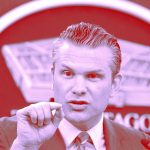Clarity is the quality of being coherent, intelligible, and free from ambiguity. And in the context of your professional world, it’s essential.
Here are the four types of clarity you need to excel in your career:
1. Clarity of purpose: What is my “Why”?
It’s hard to be engaged when you feel disconnected in your career.
Your “Why” statement is rooted in your intrinsic motivation. According to Simon Sinek, who first popularized the concept in his 2014 Ted Talk and book, Start With Why, it’s “the compelling higher purpose that inspires us and acts as the source of all we do.”
Your “Why” acts as a personal mission statement and includes your priorities and why you do what you do. It’s your higher calling and helps you prioritize how you spend your time and energy on what matters most. And most importantly, it gives meaning to the work you do.
2. Clarity of goals: What do I want?
You can’t make progress if you can’t identify your goals.
Ask yourself, “What do I want?” to help clarify what matters most to you right now. Your answer will likely differ from that of your friends or co-workers, what someone else may want for you, or even what you thought you wanted. And realize that you’re allowed to change your answer over time; what you wanted when you began your career may no longer apply.
But here’s the thing about clarity: it demands specificity, and there is no room for a wishy-washy answer. You can’t make progress if you “kind of” want something.
The more focused you can be about what matters most to you, the better.
3. Clarity of plan: How do I achieve my goals?
Being clear on what you want isn’t enough; you also need to align your goals with a plan to achieve them—and stay away from the things that can derail you.
You must practice awareness to understand how you spend your time and where and with whom you’re investing your attention. Ask yourself what you choose to devote your time to and if this choice supports your short- or long-term goals or prevents you from achieving them.
And this doesn’t just apply to things; consider with whom you spend your time. If the people in your environment are holding you back from accomplishing what you need to do, consider establishing firmer boundaries—and finding a new inner circle of those who support your goals.
4. Clarity of communication: Am I delivering my intended message?
Knowing your purpose, goals, and plan is meaningless if you can’t clearly communicate with others.
When you’re clear, everything becomes easier. People understand you, what you offer, your value, what differentiates you, how you can help them, and how they can assist you. Clarity helps others know, like, and trust you.
If you confuse people, you’ll lose people. Maximize the power of your words by simplifying them. Focus on being clear (not clever) and avoid jargon to increase the odds your message is received and understood.
And don’t forget that communication is only effective if your audience receives your intended message, so remember this golden rule of communication: it’s not about you. Before you fire off that email or make a call, take a beat to put yourself in your audience’s shoes, consider their wants and needs, and adjust your communications accordingly.
Remember, having clarity—of purpose, goals, plan, and communication—is the key to a successful career.
Read the full article here










